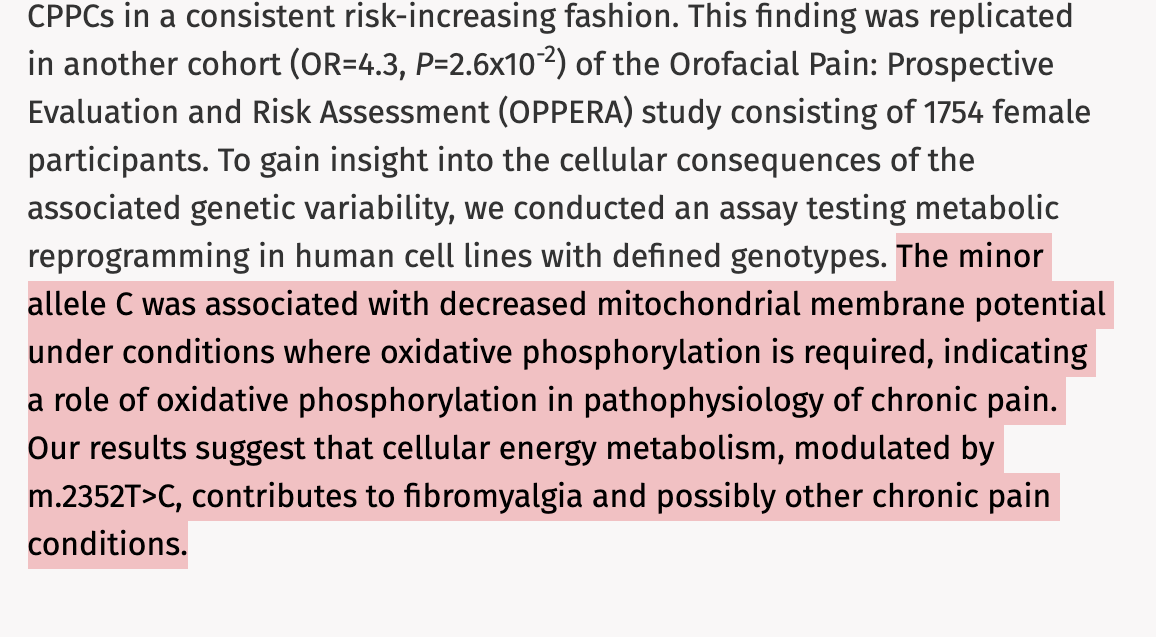Title: A genetic polymorphism that is associated with mitochondrial energy metabolism increases risk of fibromyalgia July 2002
Journal: Journal of the International Association for the Study of Pain
This new study looked at both the full nuclear genome and mitochondrial genome for 609 people. The patients in the study had persistent pain conditions (e.g. fibromyalgia, IBS, TMJ, or vulvar vestibulitis).
Fibromyalgia is a syndrome of widespread muscle pain. People with fibromyalgia often are fatigued and have sleep or mood issues also.
The researcher found that one SNP in a mitochondrial gene (m.2352) increased the risk of fibromyalgia almost 5-fold. The researchers then replicated the link with this mitochondrial genetic variant and other pain disorders.
The abstract explains the importance of this finding:

Essentially, oxidative phosphorylation is what is going on in the mitochondria to produce most of the ATP that a cell needs. With a decreased membrane potential, the mitochondria will not be as efficient.
Why is this important? The study directly links fibromyalgia to cellular metabolism. Therapies that target boosting the mitochondria may be effective.
This one genetic variant in the mitochondrial DNA is likely not the whole picture for fibromyalgia and other pain disorders, but it does point to a pathway or mechanism of action.
